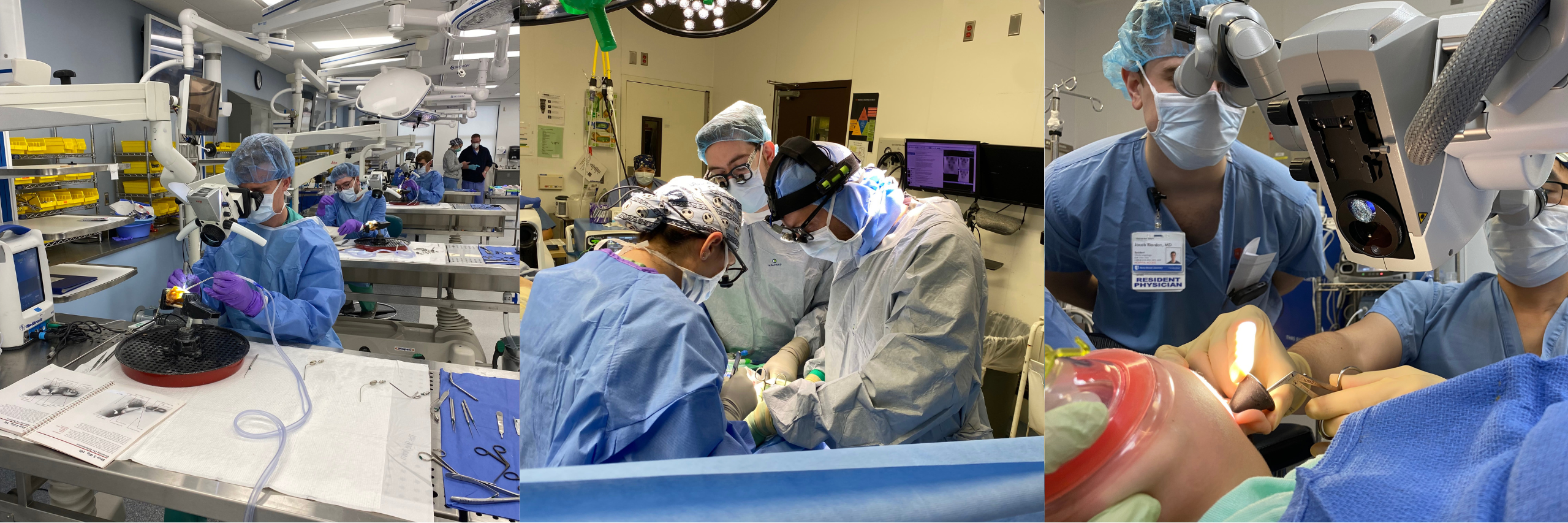How to Choose an ENT Over a General Practitioner for Recurring Issues
How to Choose an ENT Over a General Practitioner for Recurring Issues
Blog Article
Checking out the Area of Otolaryngology: What to Anticipate When You Seek Advice From an ENT
Otolaryngology, frequently referred to as ENT, encompasses the diagnosis and therapy of ear, throat, and nose disorders. For those experiencing related issues, speaking with an ENT specialist can offer quality and alleviation. Recognizing what to expect throughout such consultations is necessary for effective communication and care. This summary will describe crucial elements of the ENT experience, consisting of common reasons for gos to and the procedures associated with medical diagnosis and therapy.

Understanding Otolaryngology: A Summary
Otolaryngology, often described as ENT (Ear, throat, and nose) medicine, is a specific branch of medication that concentrates on the diagnosis and therapy of problems impacting these essential areas of the human body. This field encompasses a variety of problems, including those pertaining to hearing, balance, respiratory system function, and speech. Otolaryngologists are educated to manage both medical and medical treatments, using advanced techniques and modern technologies. Their knowledge prolongs beyond traditional conditions, attending to problems such as allergic reactions, sinus infections, and hearing loss. Furthermore, they play an essential function in the management of head and neck cancers, providing extensive care customized to individual patient needs. Overall, otolaryngology continues to be crucial for preserving health and lifestyle in affected individuals.
Common Reasons to See an ENT Specialist
Numerous individuals look for the experience of an ENT specialist for a variety of reasons, showing the varied nature of conditions that impact the throat, ear, and nose. Common problems include chronic sinusitis, which often brings about persistent nasal blockage and face pain. Allergic reactions and their associated signs and symptoms, such as itching and sneezing, additionally prompt check outs to these professionals (Otorrinolaringologia). Hearing loss, whether sudden or steady, is an additional substantial reason for consultation. On top of that, people may look for assessment for throat disorders, consisting of relentless hoarseness or ingesting troubles. Sleep apnea, defined by disrupted breathing throughout rest, is often attended to by ENT professionals as well. Each of these conditions highlights the importance of specialized treatment in taking care of complex ENT-related health issues
Getting ready for Your ENT Consultation
When preparing for an ENT consultation, it is vital to collect pertinent info and think about any type of certain problems. Patients need to compile an in-depth clinical history, including previous ear, nose, or throat problems, surgical procedures, and present medications. Documenting signs-- such as regularity, extent, and duration-- can provide important insights for the ENT expert. In addition, individuals should prepare a listing of concerns they want to ask, making certain that all concerns are attended to throughout the browse through. Bringing along any appropriate clinical records or examination outcomes can better assist the ENT in understanding the individual's condition. Patients ought to confirm their visit information, including time, place, and day, to decrease any final confusion. Appropriate prep work can improve the effectiveness of the appointment and cause far better outcomes.
What to Anticipate During the Appointment
As the consultation starts, the person can expect to take part in a comprehensive discussion with the ENT specialist regarding their signs and symptoms and case history. The professional will ask about the duration, regularity, and seriousness of signs such as hearing loss, nasal congestion, or sore throat. In addition, the patient's previous clinical problems, drugs, and any kind of appropriate family history will certainly be examined, helping the professional in creating a complete understanding of the person's wellness. The ENT may additionally ask concerning lifestyle aspects, such as direct exposure to irritants or allergens. This open discussion establishes a structure for the assessment, guaranteeing that the person's problems are dealt with and establishing the phase for any kind of required analyses or suggestions for therapy.
Diagnostic Examinations and Procedures in Otolaryngology
An array of diagnostic tests and procedures are essential in otolaryngology to accurately review and detect problems impacting the throat, ear, and nose. Typical tests include audiometry, which measures hearing function, and tympanometry, evaluating middle ear pressure. Nasal endoscopy permits visualization of the nasal passages and sinuses, while laryngoscopy analyzes the throat and vocal cords. Imaging methods, such as CT scans and MRIs, provide comprehensive views of head and neck structures. Allergy testing might additionally be conducted to identify triggers for sinus or breathing concerns. These analysis tools make it possible for ENT professionals to create a thorough understanding of clients' problems, making certain tailored and reliable administration strategies. Appropriate medical diagnosis is necessary for successful treatment end results in otolaryngology.
Therapy Options Used by ENT Specialists
ENT professionals offer a variety of therapy options tailored to deal with particular conditions influencing the ear, nose, and throat. These therapies vary from traditional techniques, such as medicine and click here way of living modifications, to more intrusive treatments. Allergies might be taken care of with antihistamines or immunotherapy, while chronic sinusitis may need nasal corticosteroids or sinus surgery. For hearing loss, ENT specialists typically advise listening devices or medical treatments like cochlear implants. In cases of throat problems, alternatives can consist of speech therapy or operations to remove obstructions. In addition, they might supply advice for taking care of rest apnea, including the use of CPAP devices or medical interventions. In general, the objective is to improve clients' lifestyle through individualized care and efficient treatment strategies.
When to Look For Follow-Up Care With an ENT
Recognizing when to seek follow-up care with an ENT specialist is essential for handling ongoing signs or complications associated with nose, ear, and throat conditions. Patients must think about setting up a follow-up consultation if signs and symptoms linger regardless of first therapy, such as persistent ear discomfort, nasal blockage, or throat pain. Modifications in hearing, balance issues, or unusual nasal discharge might also warrant further evaluation. In addition, if an individual experiences negative effects from prescribed medicines or has undertaken a surgery, follow-up treatment is essential to monitor recovery and deal with any issues. Prompt appointments can ensure effective management of conditions, prevent possible difficulties, and supply peace of mind pertaining to one's wellness. Seeking follow-up treatment advertises proactive health management in otolaryngology.
Frequently Asked Inquiries

What Credentials Should I Search for in an ENT Expert?
When looking for an ENT expert, one ought to try to find board accreditation, appropriate experience, and solid person testimonials. Furthermore, efficient interaction abilities and a compassionate approach can considerably enhance the general therapy experience.
Exactly how Do I Choose the Right ENT for My Needs?
Choosing the best ENT professional includes assessing their credentials, experience, and patient evaluations (Sinus). It is necessary to consider their communication style and strategy to treatment, ensuring they line up with the individual's specific health needs and choices
Exist Any Dangers Connected With ENT Procedures?
The dangers connected with ENT procedures might include infection, blood loss, anesthetic issues, and potential damage to bordering frameworks. Individuals should talk about these risks with their medical professional to comprehend individual worries and assurance notified choices.
Exactly How Can I Manage Anxiety Before My ENT Consultation?
To handle anxiety prior to a consultation, people can practice deep breathing workouts, picture positive results, prepare concerns ahead of time, and look for assistance from good friends or family members, fostering a sense of confidence and calmness.
What Should I Do if I Experience Adverse Effects From Therapy?
If negative effects from therapy take place, the person must promptly report them to their doctor. Changes to therapy or additional interventions might be necessary to ensure safety and efficiency in managing their condition - Otolaryngologist. As the assessment begins, the individual can expect to engage in a complete discussion with the ENT professional concerning their symptoms and clinical history. These analysis devices enable ENT professionals to establish an extensive understanding of individuals' problems, ensuring customized and reliable administration plans. ENT specialists supply a variety of treatment alternatives tailored to address certain conditions influencing the ear, nose, and throat. When seeking an ENT specialist, one need to look for board qualification, pertinent experience, and solid patient reviews. Selecting the ideal ENT professional entails evaluating their credentials, experience, and client reviews
Report this page